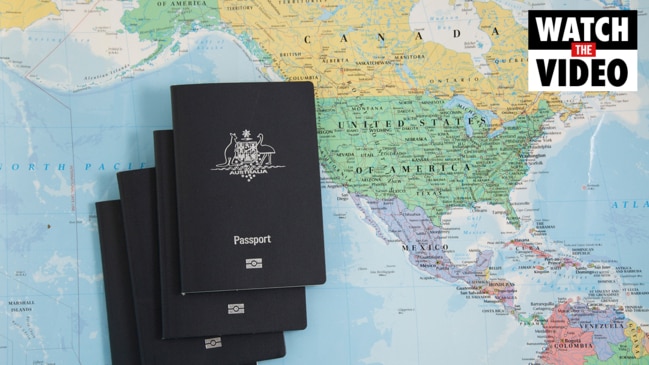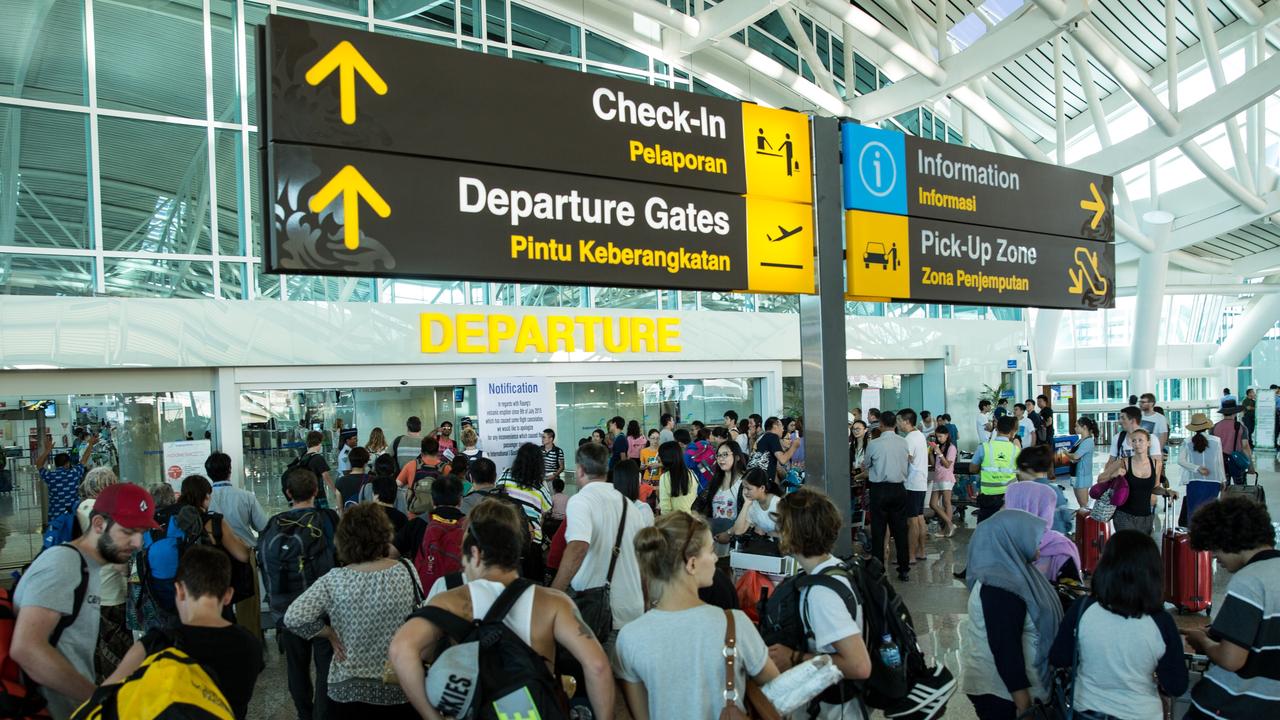Want total travel freedom? Avoid a passport stamp from this country
IF YOU enjoy having the freedom to travel anywhere in the world you want, you’ll need to get crafty at this nation’s border.

A PASSPORT isn’t just a must-have travel document you can’t enter other countries without.
For many globetrotters, their passport is also an evolving memory bank of all the places they’ve visited, marked by the entry stamps they’ve collected at airports, seaports and land borders all over the world.
But there’s one country whose stamp you don’t want inked on your passport — because it could work against your hopes of visiting other countries in the future.
And that is the passport stamp from Israel, which can essentially turn you into a bit of a travel pariah as a number of countries won’t allow entry to travellers who have it in their passports, according to Australia’s Department of Foreign Affairs and Trade.
“Travellers [arriving in Israel] receive an entry card instead of an entry stamp on arrival,” DFAT says.
“Keep this card with your passport until you leave. The card is evidence of your legal entry into Israel and may be requested by authorities during your stay.
“If you plan to other regional countries after Israel, read the travel advice for these countries.
“Some countries may refuse you entry if your passport contains evidence of travel to Israel, or if your luggage has stickers indicating you have been to Israel.”

Governments that do not recognise the State of Israel will not allow entry to foreigners, including Australians, who have spent time in Israel — even for a holiday.
As well as entry and exit passport stamps, “evidence” of travel to Israel may also include Egyptian or Jordanian stamps from border crossings with Israel, travel itineraries or tickets that mark Israel as a destination, and luggage stickers in Hebrew, according to DFAT.
READ MORE: What the colours of passports mean
If you have been to Israel at some point, these are the countries that are likely to refuse to let you in. Most are Arab League member states.
• Lebanon
• Saudi Arabia
• Iran
• Oman
• Kuwait
• Bahrain (which you should reconsider your need to travel to anyway, according to DFAT)
• Sudan (you should reconsider travelling here, too).
Libya, Yemen, Syria and Iraq will also deny entry to travellers who have been to Israel, but those are countries on DFAT’s “do not travel” list anyway.

There are some Arab nations that will allow entry to travellers who have previously been to Israel, including Jordan, United Arab Emirates, Egypt and Morocco, even though some will deny entry to Israeli passport-holders.
READ MORE: Hardest countries for Aussies to get a tourist visa
In some cases, the Australian government will issue a concurrent, or “second”, passport to Australians for a number of legitimate reasons, including the need to visit a country that will not accept a passport showing evidence of travel to another country.
But is it the same the other way? Will Israel have a problem with your travel history?
Guides for travellers to Israel say if you’re a genuine tourist with no political interest in visiting, it shouldn’t be a problem — but if you do have history with Arab countries in particular, brace for some extra questions at the border.




